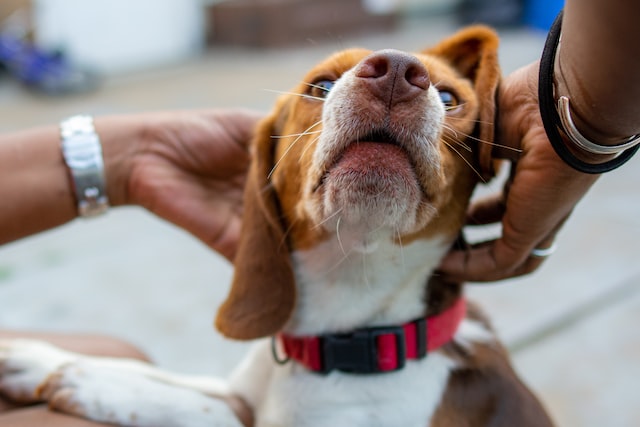
How to do a home pet health check for your dog or cat
By Carmen Lau
Regular pet health checks of your dog or cat’s body at home can help you to get to know your pet’s overall condition better and to pick up on any changes out of the ordinary, such as possible signs of cancer, injury or other illness. By regularly checking your pet’s condition, you can see when something might be up and help you to explain any changes or concerns with your vet, helping to prevent problems from turning into bigger issues later.
Vets generally recommend that pet owners do a home pet health check around once a month, but if you have an older dog or older cat you may want to do your home pet health check more regularly. You can also incorporate your home pet health check when you brush your dog or cat.
How to check your dog or cat’s overall condition at home
You can start your home pet health check by checking your dog or cat’s nose, eyes, ears, mouth and skin. Watch for signs such as spots on their eyes, teeth, gums or skin that may look unusual. If you know that your dog or cat is usually tolerant of something like looking into their mouth or touching their ears but suddenly they are not, this may indicate that they might be feeling pain or discomfort and should be checked by your vet.
Your home pet health check should also include looking at your dog or cat’s nails, tail and rear end, and feeling for any new lumps, bumps or sores on their body. Another home pet health check step that you can do is to monitor your dog or cat’s toilet habits regularly, such as their frequency of going to the toilet, watching for any difficulty going to the toilet, or unusual colour or consistency of their stool after they go to the toilet.
Lumps and bumps on your dog or cat’s body
If you feel a lump or bump on your dog or cat’s body, you should have your vet check it out. Most lumps will turn out to be fatty tumours that are benign (non-cancerous) but it is hard to be sure without a vet checking it out and in some cases taking a sample of the lump for testing.
Sebaceous cysts in dogs and cats
One type of lump that is common in dogs and less so in cats is a sebaceous cyst, which looks like a raised bump on the skin that might appear white in colour. Sebaceous cysts are usually harmless to your dog or cat. However, they may be hard to tell apart from other lumps and bumps that could be cancerous, so it’s best to have your vet check it out.
A sebaceous cyst can develop on your dog or cat’s body when a hair follicle or skin pore becomes blocked by dirt, debris, or scar tissue, or as the result of an infection. Like us, dogs and cats have microscopic oil glands called sebaceous glands that produce sebum. Sebum is the oil that keeps hair nice and shiny, but sometimes this oil can become thick and clog skin pores and hair follicles leading to sebaceous cysts forming.
Sebaceous cysts on your dog or cat’s body might go away if left alone but many tend to recur. Sometimes there may be a white and pasty discharge or bleeding from a sebaceous cyst, which may leave an open wound that is prone to infection or inflammation and will require vet treatment.
How to monitor changes in your pet’s overall condition
If you are concerned about any changes in your pet, physically or behaviourally, or about the overall condition of your pet, you should speak to your vet. To help you monitor your pet’s overall condition and to keep track of your regular home pet health checks, you can keep a diary or take photos which will also help you to compare any changes in your pet and to show to your vet if you need.
Lastly, at the end of your regular home pet health checks, don’t forget a treat for your pet and for yourself!
References:
- https://www.dailypaws.com/dogs-puppies/health-care/how-to-conduct-an-at-home-health-check-on-your-dog
- https://fidoseofreality.com/sebaceous-cysts-in-dogs-how-to-deal-with-them/
- https://www.pethealthnetwork.com/dog-health/dog-diseases-conditions-a-z/sebaceous-cysts-cats-or-dogs
- https://pets.webmd.com/dogs/dog-lumps-bumps-skin
- https://pets.webmd.com/cats/cats-lumps-bumps-skin